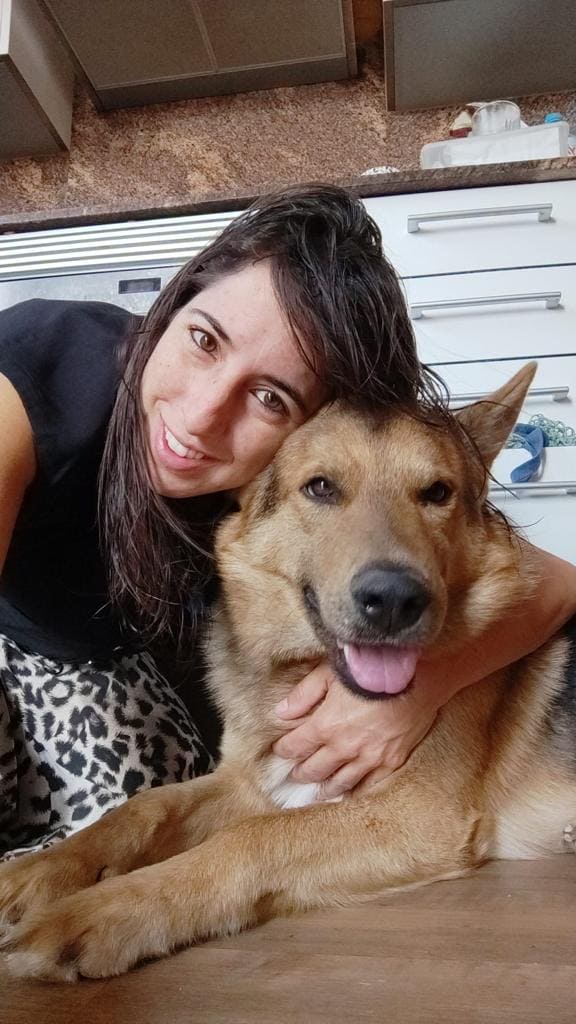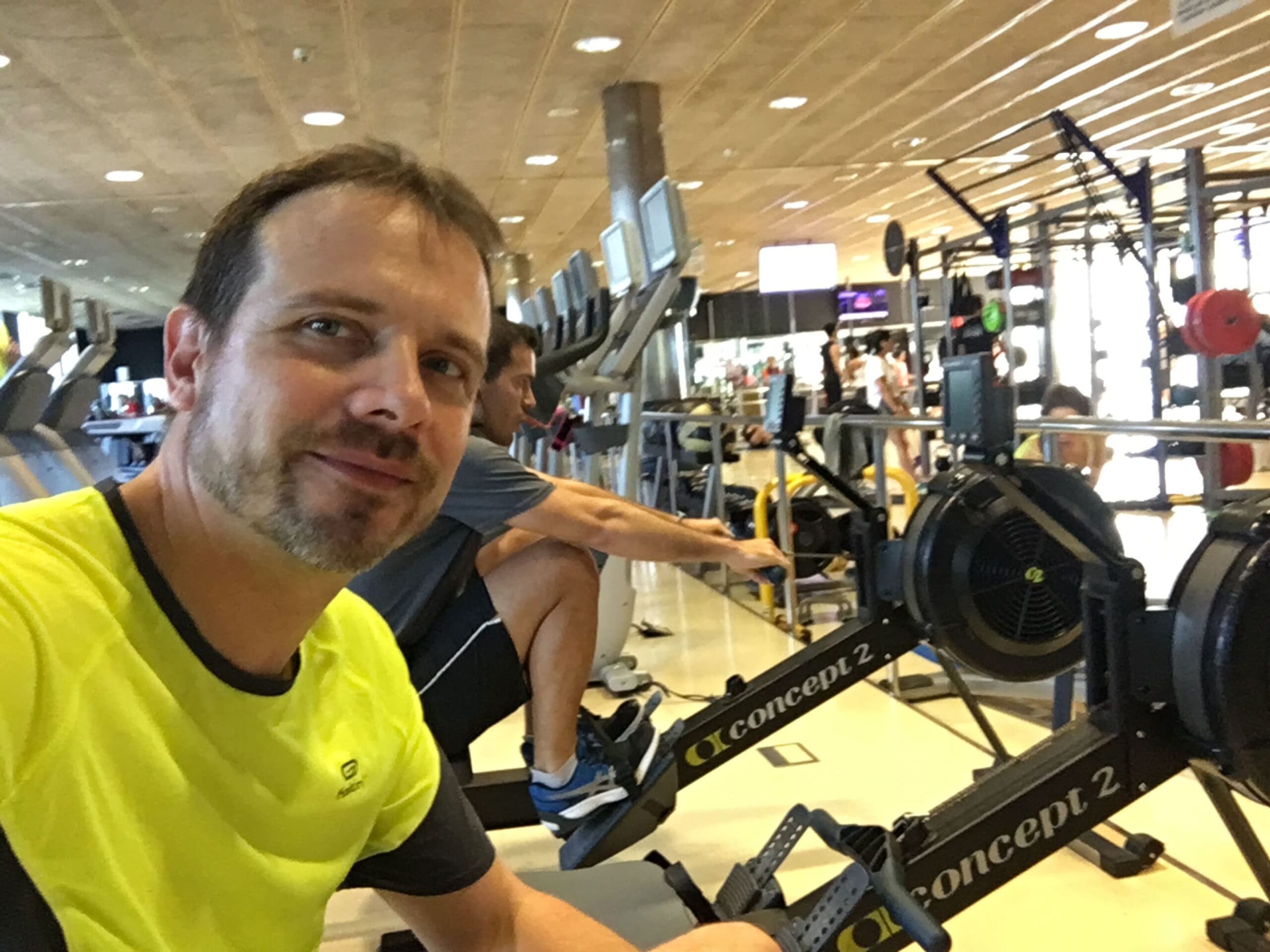Implants
Quality dental implants in Barcelona
Are you missing teeth and would you like to replace them so that you can comfortably bite and smile again?
Dental implants may be the best option for you
Dental implants allow you to replace missing teeth. They work and look similar to natural teeth. They cannot suffer decays, but they should be mantained and cleaned as if they were natural teeth. If they are not brushed and cared for correctly, bacterial plaque and tartar will accumulate, just like in natural teeth, and that could produce inflamation of the gums as It occurs in cases of gingivitis and periodontitis.
Today, thanks to the extraordinary advancement in technologies, materials and techniques, the replacement of teeth with dental implants is a comfortable, safe and predictable treatment.
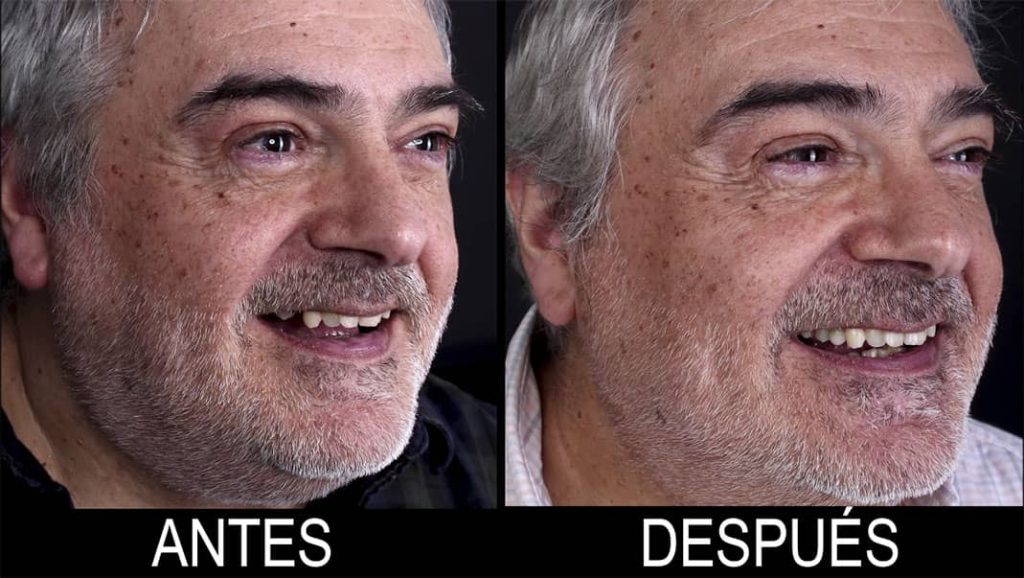
Digital dentistry makes the replacement of missing teeth with implants a much simpler, more comfortable and predictable procedure. Nowadays we can superimpose photographs, 3D models of the teeth, X-rays, etc. This allows us to digitally design and calculate the final result of the tooth or teeth we want to replace. Based on this expected final result, we program the ideal position of the implants in the computer. This allows us to manufacture surgical resin guides wich helps us place them in a totally controlled manner. Thus, the intervention is minimally invasive, faster and more comfortable for the patient and the result is more perfect and predictable. In many cases, we can even have the provisional restorations ready to be placed in just one session.

This protocol also allows us, on many occasions, to resolve cases in a simpler way, often avoiding the need to carry out grafts or bone regeneration techniques, and allows us to place implants in complicated situations, where in the past this was not possible.
The All-on-4 technique allows us to replace all the teeth in a dental arch with only 4 implants and placing the new provisional teeth in just 1 visit. Thus, in cases with completely destroyed dentitions, we can replace all the teeth in 1 single session.
Dental implants are usually made of medical grade titanium. The best quality brands offer biologically advanced designs and surface treatments. Modern white ceramic zirconia implants are also available.
We offer a wide variety of materials and techniques that allow us to choose the best solution for each individual case.
If you need to replace one or more teeth, do not hesitate to ask us for an appointment and our specialists will study your case, discuss possible solutions, show you similar cases and advise you on the best option for your case without obligation.
Víctor
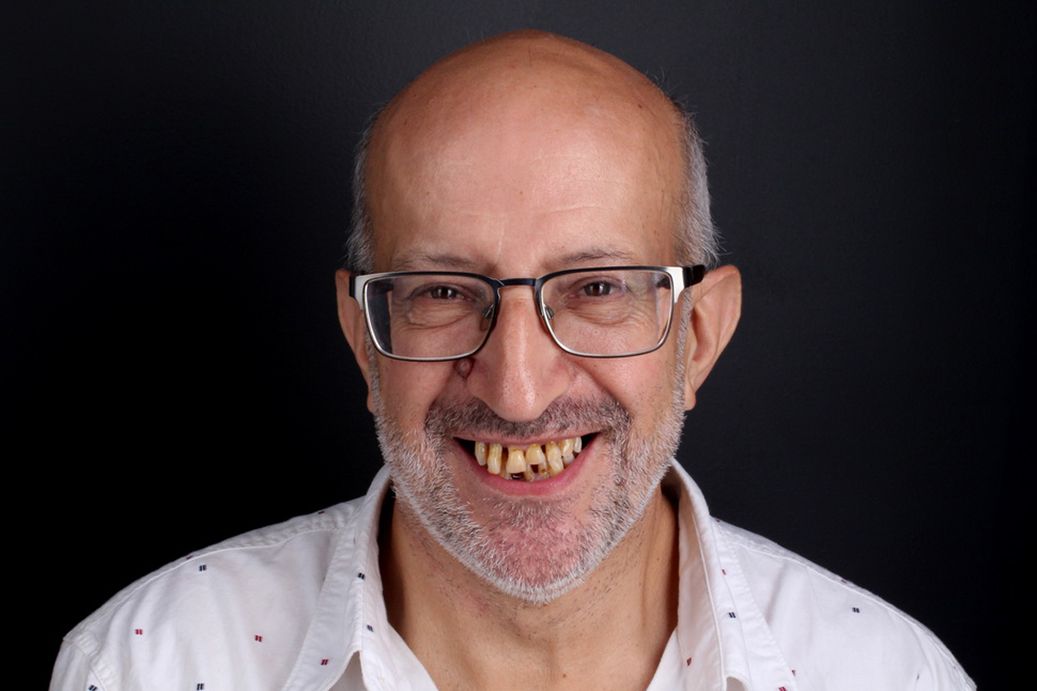
before

after
Videotestimonial
Pedro
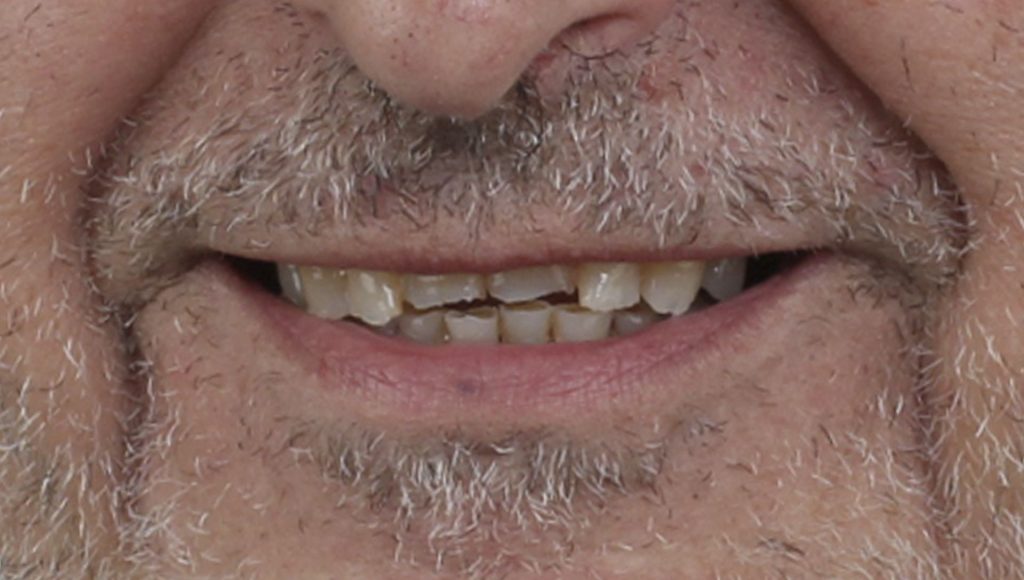
before
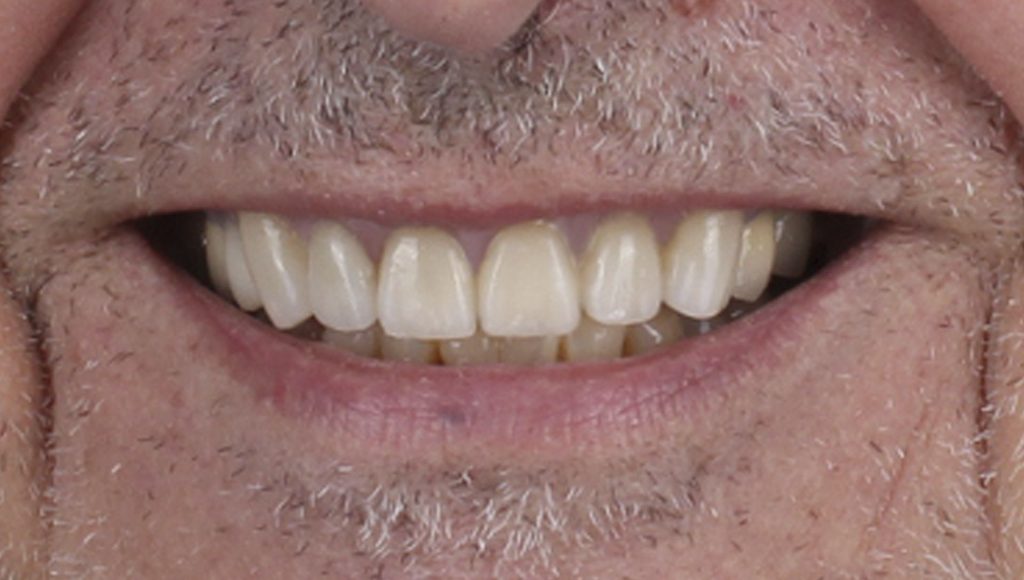
after

Videotestimonial
Manufacturing and technology
ll dental implant companies we work with stand out because of their high quality. They meet ISO standards, and the strict European and FDA (Food and Drug Administration) standards.




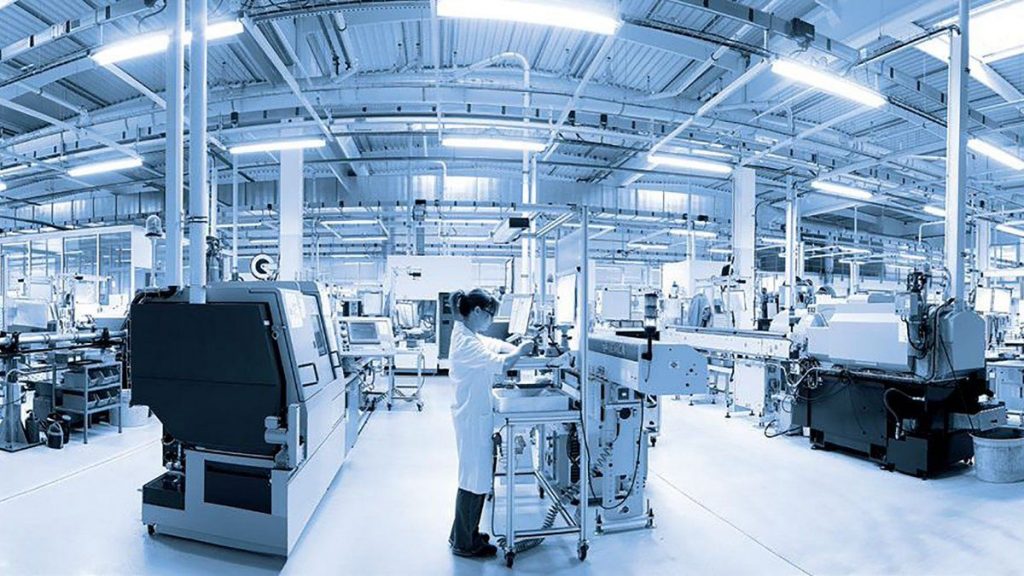
Manufacture of dental implants in Anthogyr laboratories.
Manufacture of dental implants in Soadco's laboratories.

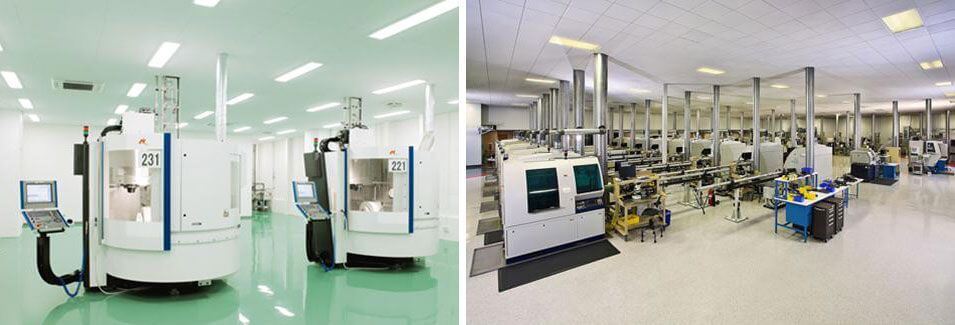
Manufacture of dental implants in Nobel Biocare's laboratories.

Dental implant with zirconia aesthetic abutment. Morse taper sealed and fixed with a titanium screw

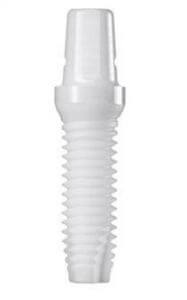
Monolithic zirconia dental implants, alternative to a titanium implants
Example of a real case treated at the Padrós Dental Clinic of a tooth replacement with a dental implant attached to the jawbone with a titanium screw and an aesthetic zirconia abutment. The goal is to provide long term health, aesthetics and naturalness.

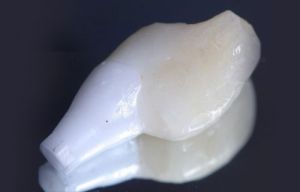

Our 3D radiology system allows us to programme cases with great precision. We can perform virtual surgeries, prepare templates, surgical guides, temporaries, etc. in order to place implants in a faster, more comfortable and predictable way for the patient.
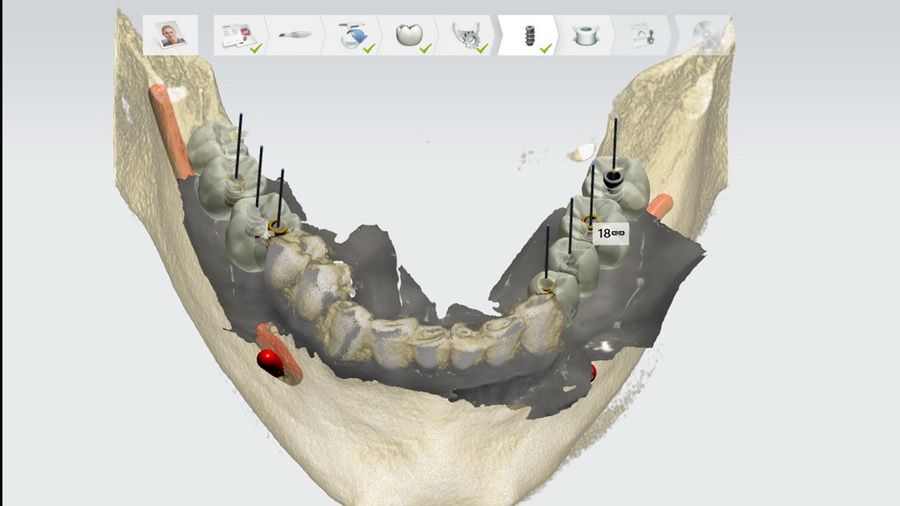
Our operating room is equipped with the most advanced technologies, such as piezoelectric surgery, new internal irrigation and torque control engines, tissue regeneration materials, instant radiovisiography, Gore-Tex sutures and membranes, etc.
And of course, the most important part is the experience of our surgeons and team of assistants.
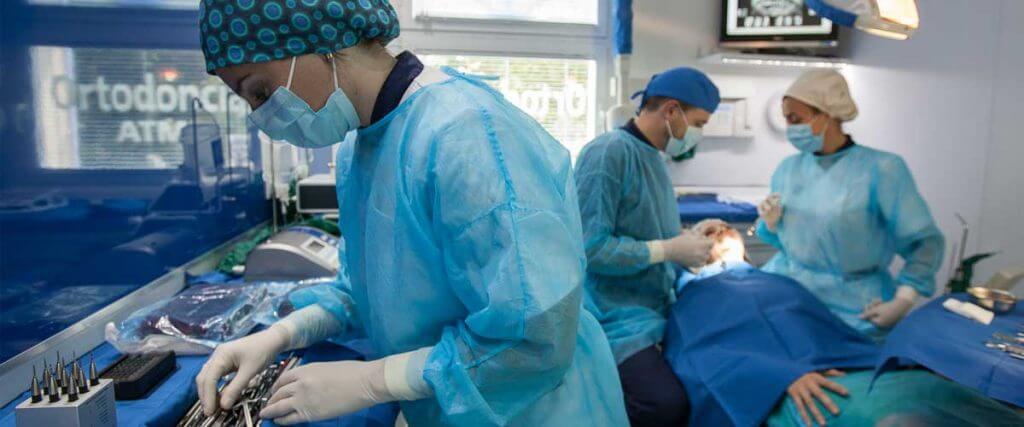
10 questions about dental implants
This is a small screw, usually made of pure titanium or zirconia, which is placed in the bone of the jaw or jaws to replace the root of a missing tooth or several teeth. The bone cells are attached directly to the surface of the implant (a process called osseointegration). A crown is placed on top of the dental implant to replace the outer part of the tooth. The appearance and function is very similar to that of a natural tooth. It is an alternative to conventional dentures.
Depending on the type of dental surgery required, the postoperative period after dental implant placement can range from no discomfort at all to a few days of mild resentment that disappears with painkillers. The healing of implant surgery is generally more comfortable than that of conventional tooth extraction, as there are no open wounds and no inflamed or infected areas in the mouth.
Thanks to digital dentistry advancements, surgeries are now faster and more comfortable and post-operative results are better.
If the tooth to be extracted is not acutely infected and there is sufficient bone remaining when the tooth is extracted, the implant can be placed at the same time as the tooth is extracted. These are called immediate implants, and are often preferable, as they can help to preserve the surrounding gum and bone.
If the stability of the newly fixed implant is very good, a temporary crown can also be placed at the same time, so that in the same dental implant surgery we remove the tooth and replace it completely (both aesthetically and functionally). These are called immediate load dental implants. To find out whether the implant will be able to support a fixed crown at the same time, we have an advanced device that measures, by resonance, the level of stability of the implant (Ostell).
During the first few hours, it is important not to eat anything until the local anaesthetic effect disappears (to avoid accidentally biting your tongue or cheek).
It is highly recommended not to smoke (it directly affects vascularisation and wound healing and significantly increases the risk of complications). It is also necessary to keep the mouth clean and not touch the area (neither with the fingers, nor with the tongue, nor by biting food) during the first few days. It is also advisable not to talk too much, to avoid doing hard exercise and to follow a soft diet. Apart from these precautions, a normal lifestyle can be followed.
Exactly the same feeling as you get with your natural teeth. You don’t feel any special difference. Dental implants cannot suffer from tooth decay, but they can accumulate plaque and tartar, just like natural teeth and dentures, so it is very important to keep them clean at all times. It is advisable (as with natural teeth) to brush your teeth after every meal and use mouthwash once a day.
When placing a dental implant, we try to make the organism (at the cellular level) believe that the implant is part of the body itself (that it is not a foreign object). We try to make the bone cells think that the implant is a tooth so that they adhere to it to hold it in place. This process is called osseointegration and occurs in the first 2-3 months from the day of placement.
If the newly inserted implant receives too much force or is not kept clean and becomes contaminated with bacteria, the body may not accept it as its own and therefore form a separation membrane around the implant. In these cases, proper integration does not occur and the implant has to be removed. This occurs in a very small percentage of cases. In these situations it is important to analyse the cause of this non-integration. It is usually no problem to replace the removed implant with a new one.
Although not contraindicated, we try to delay implant placement in pregnant women. We also avoid placing implants in uncontrolled diabetic patients until blood sugar levels are under control.
As mentioned above, patients who smoke are at higher risk for complications. Patients with osteoporosis can usually be treated without problems, although they require a more detailed study. Similarly, people taking certain medications (anticoagulants, bisphosphonates, etc.) may require special precautions. Each case must be studied and programmed on a personalised basis.
There are many different types of dental implants. Different manufacturers offer different qualities in the manufacture of dental implants. Designs, finishes, surface treatments, types of connections, biocompatibility, resistance, versatility, aesthetics, etc. Each clinician must know how to choose the most suitable material in each case. And it is probably a bad idea to choose, as is often the case, the cheapest dental implants for something that has to become part of our own body.
Dental implants do not rattle when passing through metal detectors (typical in airports or security areas). Neither do metal fillings or conventional dentures. There is no need to take any precautions or warnings.
As is the case in virtually every field, there are many different brands and models of dental implants. The more expensive implants often (logically) offer advantages over the cheaper ones. For this reason it is very difficult to specify prices for dental implants or dental prostheses without first having studied the situation. The dentist will talk to the patient, make an estimate of the cost of the treatment and recommend the most suitable solution. At the consultation you can also ask the dentist for more information about the advantages and disadvantages.

Payment facilities in up to 5 years
Did you find all the information you were looking for? Did you find it interesting? Leave us your opinion:




